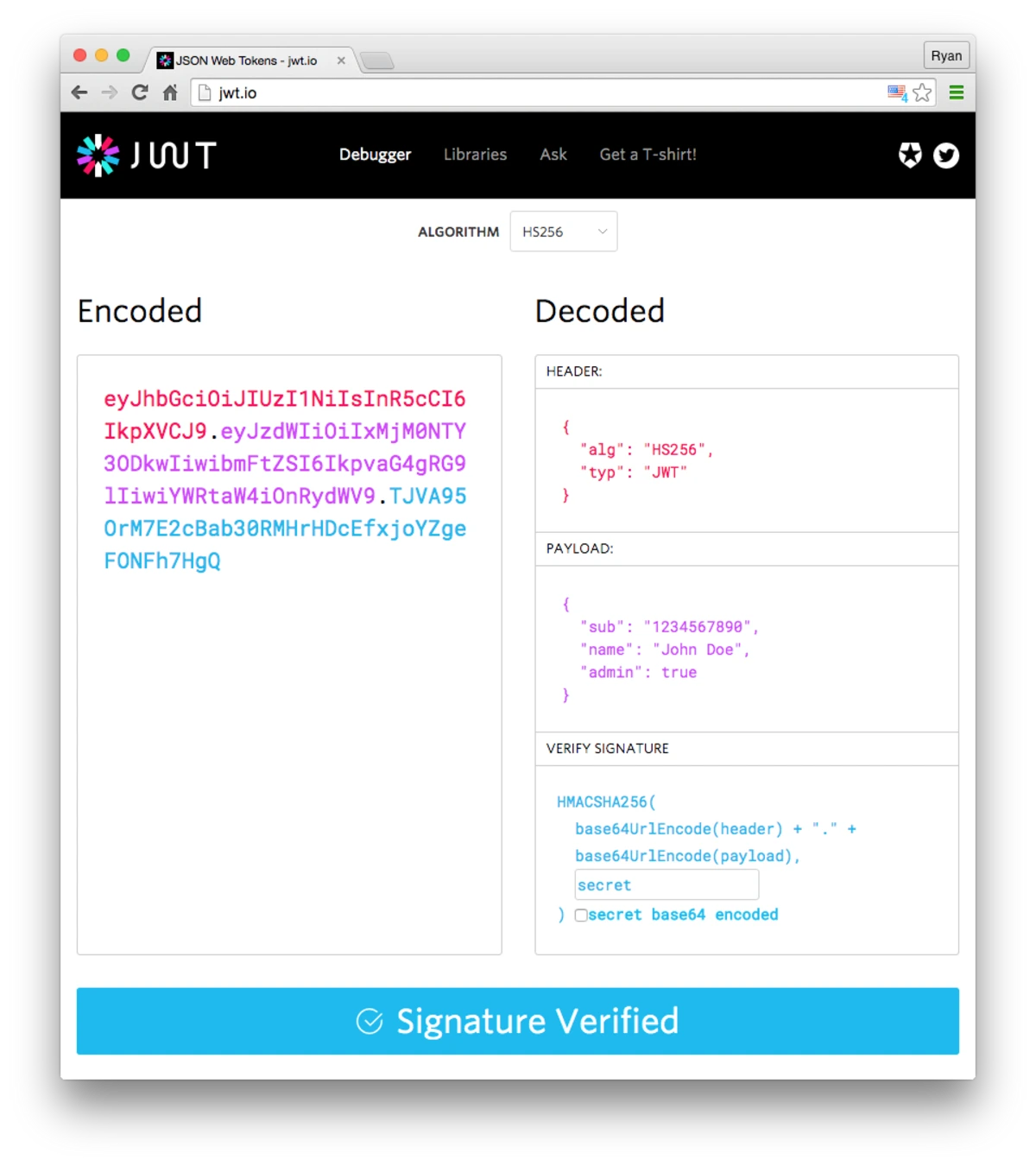If you’re an IT professional looking to stay competitive in the job market, it’s important to have a strong set of skills that are in high demand.
Table of Contents
In this blog post, we’ll highlight the top 7 in-demand skills for IT professionals in 2023.
The Top 7 In-Demand Skills for IT Professionals in 2023:
1. Artificial Intelligence and Machine Learning
These cutting-edge technologies are being used in a variety of industries to automate tasks, analyze data, and improve decision making.
Artificial intelligence (AI) and machine learning (ML) are increasingly being used in various industries to automate tasks, improve efficiency, and make better decisions. Software professionals with expertise in AI and ML can expect to be in high demand as these technologies become more widespread.
This is the first in the list of The Top 7 In-Demand Skills for IT Professionals considering the current trend.
You can try: OpenAI

Artificial intelligence (AI) and machine learning (ML) are rapidly transforming the field of IT, and are set to play a major role in the future of technology. In this article, we will explore some key considerations for IT professionals looking to build expertise in AI and ML.
1) Understand the basics of AI and ML
AI and ML involve using algorithms and statistical models to enable computers to perform tasks that would normally require human intelligence, such as decision-making, pattern recognition, and natural language processing. IT professionals should familiarize themselves with the fundamental concepts and techniques of AI and ML, including supervised and unsupervised learning, neural networks, and deep learning.
2) Learn programming languages and frameworks
To work with AI and ML, IT professionals will need to be proficient in programming languages such as Python, R, and Java, as well as frameworks such as TensorFlow and PyTorch. These tools are used to build and train machine learning models, and to implement AI solutions.
3) Gather and prepare data
AI and ML algorithms rely on large amounts of data to learn and make predictions, so IT professionals should be familiar with techniques for gathering, cleaning, and preprocessing data. This may involve using data scraping and web scraping tools, as well as data manipulation and visualization tools.
4) Experiment and Test
IT professionals should be willing to experiment and test different approaches and techniques to see what works best for a given problem. This may involve using different algorithms, tuning hyperparameters, or trying different ways of representing the data.
5) Stay up-to-date
The field of AI and ML is rapidly evolving, and IT professionals should make an effort to stay up-to-date with the latest developments and best practices. This may involve reading research papers and attending conferences and workshops, as well as participating in online communities and forums.
By building expertise in AI and ML, IT professionals can position themselves at the forefront of the technology industry and take advantage of the many exciting career opportunities that are emerging in this field.
This is the first in the list of The Top 7 In-Demand Skills for IT Professionals.
2. Cloud Computing
With the increasing shift to remote work and the need for scalable, flexible IT infrastructure, cloud computing skills are more valuable than ever.
Cloud computing allows businesses to store and access data and applications over the internet, rather than on local servers or devices. Software professionals with skills in cloud computing technologies such as Amazon Web Services (AWS), Microsoft Azure, and Google Cloud Platform (GCP) are highly sought after as more and more companies move their operations to the cloud.

Cloud computing is a rapidly growing field that is transforming the way IT professionals build and deliver applications and services. In this article, we will explore some key considerations for IT professionals looking to build expertise in cloud computing.
1) Understand the basics of cloud computing
Cloud computing involves delivering computing resources, such as storage, networking, and computing power, over the internet, rather than on local servers or devices. IT professionals should familiarize themselves with the different types of cloud computing, such as infrastructure-as-a-service (IaaS), platform-as-a-service (PaaS), and software-as-a-service (SaaS), and the benefits and challenges of each.
2) Learn cloud computing platforms and technologies
To work with cloud computing, IT professionals will need to be proficient in cloud platforms such as Amazon Web Services (AWS), Microsoft Azure, and Google Cloud Platform (GCP). These platforms offer a wide range of services and tools for building, deploying, and managing applications and services in the cloud.
3) Understand cloud architecture and design patterns
IT professionals should be familiar with cloud architecture patterns and design principles, such as scalability, availability, and security, to ensure that their applications and services are built to take advantage of the benefits of the cloud.
4) Learn cloud management and automation tools
Cloud computing requires different approaches to managing and maintaining applications and services, and IT professionals should be familiar with tools such as configuration management, orchestration, and continuous integration and delivery (CI/CD) to streamline these processes.
5) Stay up-to-date with the latest developments
The field of cloud computing is rapidly evolving, and IT professionals should make an effort to stay up-to-date with the latest developments and best practices. This may involve reading research papers and attending conferences and workshops, as well as participating in online communities and forums.
By building expertise in cloud computing, IT professionals can take advantage of the many exciting career opportunities that are emerging in this field, and help their organizations leverage the benefits of the cloud to drive innovation and efficiency.
This is the first in the list of The Top 7 In-Demand Skills for IT Professionals.
3. Cybersecurity
Cyber attacks are becoming more sophisticated and frequent, making cybersecurity skills a must-have for IT professionals.
Cybersecurity involves protecting computer systems and networks from cyber threats such as hacking, malware, and ransomware. With the increasing reliance on technology, software professionals with expertise in cybersecurity are in high demand to help protect businesses and organizations from cyber attacks.

Cybersecurity is a critical concern for IT professionals, as it involves protecting computer systems and networks from cyber threats such as hacking, malware, and ransomware. In this article, we will explore some key considerations for IT professionals looking to build expertise in cybersecurity.
1) Understand the basics of cybersecurity
Cybersecurity involves a range of practices and technologies for protecting against cyber threats and vulnerabilities. IT professionals should familiarize themselves with the fundamental concepts and techniques of cybersecurity, including risk assessment, network security, and incident response.
2) Learn cybersecurity technologies and tools
To work with cybersecurity, IT professionals will need to be proficient in technologies and tools such as firewalls, intrusion detection and prevention systems, and antivirus software. They should also be familiar with security protocols such as SSL/TLS and HTTPS, and encryption techniques such as AES and RSA.
3) Understand cybersecurity regulations and compliance
IT professionals should be familiar with relevant cybersecurity regulations and standards, such as HIPAA, PCI DSS, and GDPR, and the requirements for meeting these standards. They should also be aware of industry best practices, such as the Center for Internet Security’s (CIS) 20 Critical Security Controls.
4) Learn cybersecurity risk management and incident response
IT professionals should be familiar with risk management techniques, such as risk assessment and risk mitigation, to help identify and address potential cybersecurity threats. They should also be prepared to respond to cybersecurity incidents, including conducting investigations, implementing corrective actions, and communicating with stakeholders.
5) Stay up-to-date with the latest developments
The field of cybersecurity is constantly evolving, and IT professionals should make an effort to stay up-to-date with the latest developments and best practices. This may involve reading research papers and attending conferences and workshops, as well as participating in online communities and forums.
By building expertise in cybersecurity, IT professionals can help protect their organizations against cyber threats and vulnerabilities, and ensure that their systems and data are secure.
4. Data Analysis and Management (Data science)
The ability to collect, organize, and analyze data is essential for making informed business decisions.
Data science involves using statistical and analytical techniques to extract insights and knowledge from data. Software professionals with skills in data science can help businesses make data-driven decisions, and are in high demand in industries such as finance, healthcare, and e-commerce.

Data analysis and data management are critical skills for IT professionals, as they enable them to extract insights from data and inform decision-making. In this article, we will explore some key considerations for IT professionals looking to build expertise in data analysis and management.
1) Understand the basics of data analysis
Data analysis involves using tools and techniques such as statistical analysis, data visualization, and data mining to extract insights and inform decision-making. IT professionals should familiarize themselves with the fundamental concepts and techniques of data analysis, including exploratory data analysis, hypothesis testing, and regression analysis.
2) Learn data analysis tools and languages
To work with data analysis, IT professionals will need to be proficient in tools and languages such as Python, R, and SQL. These tools are commonly used for tasks such as data cleaning, manipulation, and visualization, and for implementing machine learning algorithms.
3) Understand data management principles
Data management involves organizing, storing, and protecting data assets in a way that ensures their availability, integrity, and security. IT professionals should be familiar with principles such as data governance, data modeling, and database design, and be able to use tools such as database management systems and data warehouses to store and manage data.
4) Learn data visualization and communication
Data analysis is not just about crunching numbers – it is also about communicating the insights and implications of the data to stakeholders. IT professionals should be familiar with data visualization tools such as Tableau and Excel, and be able to effectively present data in a clear and compelling way.
5. Programming and Software Development
Whether you’re working on web applications, mobile apps, or custom software solutions, programming skills are in high demand.
Programming and software development are closely related fields that involve creating and maintaining software applications.
Programming is the process of designing, writing, testing, and debugging code for software applications. It involves using programming languages, such as C++, Java, or Python, to create instructions that a computer can follow to perform specific tasks. Programmers write code that is organized, efficient, and scalable, and that follows best practices and coding standards.

Software development, on the other hand, is the broader process of creating software applications, including the design, coding, testing, and maintenance of the software. It involves working with a team of developers, analysts, and designers to define the requirements and specifications of the software, and to plan, implement, and deliver the software on time and within budget.
Both programming and software development require strong problem-solving and logical thinking skills, as well as an understanding of computer science and software engineering principles. They also require the ability to work well in a team, and to adapt to new technologies and methodologies as they emerge.
Programming and software development are essential skills for IT professionals, as they enable them to create and maintain software applications. In this article, we will explore some key considerations for IT professionals looking to build expertise in programming and software development.
1) Understand the basics of programming
Programming involves designing, writing, testing, and debugging code for software applications. IT professionals should familiarize themselves with the fundamental concepts and techniques of programming, including data types, variables, loops, and functions, as well as best practices and coding standards.
2) Learn programming languages
To work with programming, IT professionals will need to be proficient in one or more programming languages, such as C++, Java, or Python. They should also be familiar with different programming paradigms, such as object-oriented programming and functional programming, and be able to choose the appropriate language and paradigm for a given task.
3) Understand software development methodologies
Software development involves a range of activities, including requirements gathering, design, coding, testing, and maintenance. IT professionals should be familiar with different software development methodologies, such as Agile and Waterfall, and be able to choose the appropriate methodology for a given project.
4) Learn software development tools and frameworks
To work with software development, IT professionals should be familiar with tools and frameworks such as IDEs (integrated development environments), version control systems, and build and deployment automation tools. They should also be able to use libraries and frameworks such as Spring and Django to streamline the development process.
5) Stay up-to-date with the latest developments
The field of programming and software development is constantly evolving, and IT professionals should make an effort to stay up-to-date with the latest developments and best practices. This may involve reading research papers and attending conferences and workshops, as well as participating in online communities and forums.
By building expertise in programming and software development, IT professionals can position themselves at the forefront of the technology industry and take advantage of the many exciting career opportunities that are emerging in these fields.
6. Project Management
IT projects often involve coordinating the work of multiple teams, making project management skills essential for success.
Project management is a critical skill for IT professionals, as it enables them to effectively plan, execute, and deliver complex projects on time and within budget. In this article, we will explore some key principles of project management that IT professionals can use to ensure the success of their projects.
1) Define clear goals and objectives
The first step in any project is to define its goals and objectives, as well as the key performance indicators (KPIs) that will be used to measure its success. This helps to ensure that the project stays on track and that all stakeholders are aligned on what needs to be achieved.
2) Create a project plan
A project plan is a detailed document that outlines the steps and tasks that need to be completed in order to achieve the project’s goals and objectives. It should include a timeline, budget, and resource allocation, as well as a risk management plan to mitigate any potential issues that may arise.
3) Communicate effectively
Communication is key in project management, as it ensures that all stakeholders are informed of the project’s progress and any issues that may arise. IT professionals should use a variety of communication channels, such as email, phone, and in-person meetings, to keep everyone informed and on track.
4) Monitor and control the project
IT professionals should regularly monitor and review the project’s progress to ensure that it is on track and that any issues are addressed in a timely manner. This may involve adjusting the project plan, allocating additional resources, or taking other corrective actions as needed.
5) Manage risks and issues
All projects come with a certain level of risk and uncertainty, and it is the project manager’s responsibility to identify and mitigate these risks. IT professionals should have a risk management plan in place to identify and assess potential risks, and to take proactive steps to minimize their impact on the project.
6) Use project management tools and software
There are a number of tools and software applications available to help IT professionals manage projects more effectively. These include project management software, such as Microsoft Project and Asana, which can help with task and resource management, as well as project collaboration tools, such as Slack and Trello, which can help with communication and teamwork.

By following these principles of project management, IT professionals can ensure that their projects are delivered on time, within budget, and to the desired quality standards.
7. Communication and Collaboration
With the rise of remote work, the ability to effectively communicate and collaborate with team members is more important than ever.

Effective communication and collaboration are essential skills for IT professionals, as they enable them to work effectively with clients, colleagues, and other stakeholders to achieve project goals. In this article, we will explore some key strategies that IT professionals can use to improve their communication and collaboration skills.
1) Use a variety of communication channels
IT professionals should be comfortable using a range of communication channels, including email, phone, video conferencing, and in-person meetings, to ensure that they can reach their intended audience in the most effective way. It is also important to be responsive and timely in responding to messages and requests.
2) Listen actively
Active listening involves paying attention to what others are saying, as well as nonverbal cues such as body language and tone of voice. IT professionals should practice active listening to ensure that they fully understand the perspectives and needs of their colleagues and clients.
3) Communicate clearly and concisely
IT professionals should be able to clearly and concisely convey technical information to non-technical audiences. This may involve using visual aids, such as diagrams and charts, to explain complex concepts. It is also important to use plain language and avoid jargon as much as possible.
4) Collaborate with team members
IT professionals should be able to work effectively in a team environment, and be willing to share knowledge and resources with their colleagues. This may involve using collaboration tools, such as project management software and online whiteboards, to work on projects and tasks together.
5) Use problem-solving and conflict resolution skills
IT professionals will inevitably encounter challenges and conflicts when working on projects, and it is important to have the skills to address these issues in a constructive and positive way. This may involve using problem-solving techniques, such as brainstorming and root cause analysis, to identify and resolve issues.
By following these strategies, IT professionals can improve their communication and collaboration skills, and work more effectively with their colleagues and clients.
Conclusion
By focusing on these in-demand skills, you can position yourself as a valuable asset to potential employers and keep your career in the fast lane.
In conclusion, the top 7 in-demand skills for IT professionals in the 2023 are:
- Artificial Intelligence and Machine Learning
- Cloud Computing
- Cybersecurity
- Data Analysis and Management (Data science)
- Programming and Software Development
- Project Management
- Communication and Collaboration
By building expertise in these areas, IT professionals can position themselves at the forefront of the technology industry and take advantage of the many exciting career opportunities that are emerging in these fields.
Whether you are just starting out in your IT career, or you are an experienced professional looking to take your skills to the next level, mastering these in-demand skills can help you transform your career and get the edge in the job market.
You can check: Internet Explorer Retired By Microsoft After 27 Yrs., Impact? What to do next?











One thought on “Get the Edge: The Top 7 In-Demand Skills for IT Professionals in the Coming Year to Transform”